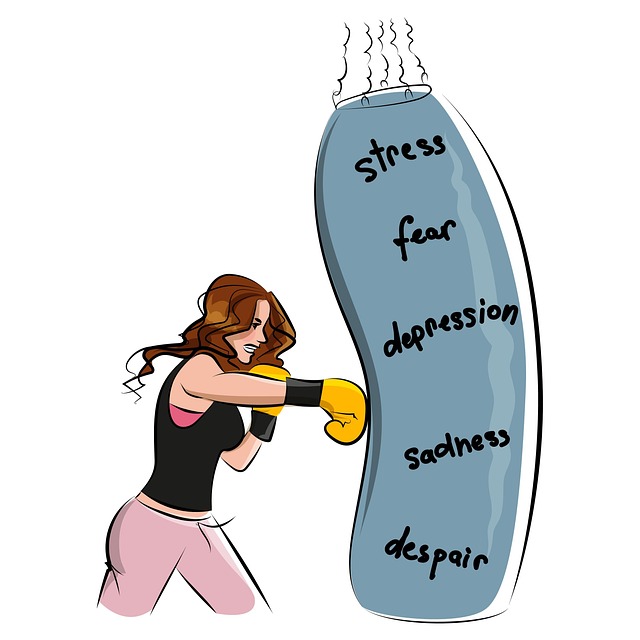Lone Tree Geriatrics Therapy employs a multifaceted risk management approach in mental health, focusing on dynamic risk assessment, adaptive strategies, and protective factors. By integrating Mental Health Policy insights and tailored therapeutic methods like Mindfulness Meditation, they proactively manage high-stress situations, staff burnout, and complex cases. This comprehensive plan fosters resilience, well-being, and a healthier work environment, reflecting their commitment to excellence in mental health care. Lone Tree Geriatrics Therapy leverages strong networks, cultural competency training, confidence-boosting techniques, and crisis intervention protocols to address unique professional challenges.
In the demanding field of mental health care, effective risk management is paramount. This article explores essential strategies tailored for professionals at Lone Tree Geriatrics Therapy, guiding them in navigating potential risks seamlessly. We delve into understanding diverse risk factors inherent in mental health practice and provide a structured approach to developing robust risk management plans. Through examining various scenarios, we offer valuable insights into mitigating and responding to risks promptly, ensuring patient safety and fostering resilient therapeutic environments.
- Understanding Risk in Mental Health Practice
- Developing a Comprehensive Risk Management Plan
- Strategies for Mitigating and Responding to Risks
Understanding Risk in Mental Health Practice

In the context of mental health practice, understanding risk goes beyond mere identification of potential hazards. It involves a nuanced appreciation of complex human behaviors and emotional vulnerabilities unique to each client. Mental health professionals at Lone Tree Geriatrics Therapy recognize that risk is dynamic; it shifts with changes in client conditions, therapeutic alliances, and societal factors. Effective risk management planning, therefore, requires ongoing assessment and adaptation to evolving circumstances.
A comprehensive understanding of risk entails considering not only the likelihood and magnitude of adverse outcomes but also the context in which they may arise. This includes assessing self-esteem improvement as a protective factor alongside identifying potential triggers for distress or relapse. By integrating insights from Mental Health Policy Analysis and Advocacy, professionals can develop proactive strategies that balance client safety with the therapeutic goals, ensuring tailored interventions that foster resilience and well-being.
Developing a Comprehensive Risk Management Plan

In the dynamic field of mental health care, where professionals like those at Lone Tree Geriatrics Therapy encounter diverse challenges daily, a robust Risk Management Plan is non-negotiable. Developing such a plan involves a systematic approach to identify potential risks and implement proactive strategies to mitigate them effectively. This process begins with a thorough assessment of the work environment, patient demographics, and the unique therapies offered, like Mindfulness Meditation, which can also serve as a powerful tool for Stress Management.
By considering factors specific to their practice, such as high-stress situations, complex patient cases, or even personal burnout, mental health professionals can create tailored risk mitigation strategies. This might include Self-Esteem Improvement initiatives for staff, clear crisis communication protocols, and regular debriefing sessions to process challenging interactions. A comprehensive Risk Management Plan, when executed diligently, ensures the well-being of both the professionals and their patients, fostering a healthier, more sustainable work environment.
Strategies for Mitigating and Responding to Risks

Mental health professionals face unique challenges that require a proactive approach to risk management. Effective strategies for mitigating and responding to risks involve a multi-faceted approach, integrating both personal resilience and organizational preparedness. For instance, fostering strong Lone Tree Geriatrics Therapy networks can provide support systems, enhancing the healthcare provider’s ability to navigate difficult situations. Regular Healthcare Provider Cultural Competency Training equips professionals with the skills to address diverse client needs, reducing potential cultural pitfalls that could escalate into risks.
Building resilience through Confidence Boosting techniques and adhering to evidence-based Mind Over Matter Principles empowers therapists to manage their own mental well-being. This, in turn, enables them to provide consistent and compassionate care. Additionally, establishing clear crisis intervention protocols within practices ensures a structured response when facing high-risk scenarios. By combining individual preparedness with robust organizational policies, mental health professionals can effectively mitigate risks and deliver exceptional patient care.
Effective risk management planning is essential for mental health professionals, such as those at Lone Tree Geriatrics Therapy, to ensure patient safety and maintain a healthy work environment. By understanding the various risks inherent in mental health practice, developing a comprehensive plan, and implementing strategies for mitigation and response, professionals can navigate challenges effectively. This approach not only protects patients but also supports therapists’ well-being, fostering a more secure and productive practice setting.













